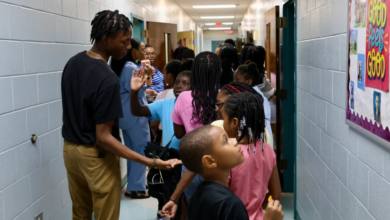Why we need more arts and humanities education in the AI era, not less

For most of modern economic history, “execution” was king. Ideas were cheap, it was said – everyone had them.
What mattered was the ability to execute: to build, to scale, to distribute. More importantly, execution was expensive and a whole domain of science and management studies emerged to make execution more efficient. Investors sought founders who could deliver, not just dream. Societies built institutions to train doers, not dreamers.
But that era is ending.
In the age of “Agentic AI” and autonomous machines, execution is no longer the scarce resource. Machines can now write code, draft business plans, design user interfaces, produce content and even negotiate contracts. Tasks that once required teams of specialists can now be performed by a single person with a laptop and a prompt.
The startup founder no longer needs a co-founder who codes. The consultant doesn’t need a deck designer. The architect doesn’t need a draughtsman. What they need – what everyone needs – is an idea that makes them stand out.

In this new landscape, the bottleneck has shifted. Execution is abundant, commoditised and near-instant. The real scarcity now is ideation: the ability to imagine the new, the meaningful, the differentiated. And this kind of thinking comes less from the Stem subjects and more from the arts, the humanities and the social sciences.
Ideas are not found in nature. They are not discovered through logic or experimentation. They are created – shaped by metaphor, story, analogy, irony, critique and context. They are cultivated in literature, philosophy, history, anthropology, design and music. They draw on cultural archetypes and human experience before they are converted into logic and formulas.
Stem disciplines are essential, but they serve a different function – they test the feasibility and validity of our ideas. Science and technology build on our ideas. Engineering applies them. Mathematics calibrates them. These are disciplines of precision, proof and performance. But the eureka moment that reframes a problem, that imagines a new use, or sees a system from an unexpected angle – that spark lives elsewhere.
The arts, humanities and social sciences train people not just to analyse, but to interpret, reimagine and contextualise. In a world where machines are rapidly absorbing the burden of execution, it is these capabilities that will make all the difference.
Despite their rising importance, universities around the world have been reallocating resources away from the idea disciplines. In the UK, for example, student enrolment in humanities has been falling: it dropped from 28 per cent in 1961-62 to just 8 per cent in 2019-20. Departments are being closed.
In the US, the American Academy of Arts and Sciences reported a 24 per cent drop in undergraduate degrees awarded in the humanities between 2012 and 2022, falling below 200,000 for the first time in more than two decades. This decline is particularly acute in traditional disciplines like English and history. The number of English majors, for example, has plummeted by about half since the late 1990s, while history majors saw a 45 per cent decrease from their 2007 peak.
The decline in humanities enrolment goes beyond the Anglo-American world. In Germany, the Federal Statistical Office – better known as Destatis – reports a 22 per cent drop in humanities students over the past two decades, with their proportion of all university students shrinking from 17 per cent to just 10 per cent by 2023, largely due to a societal push towards Stem and health sciences.
Similarly, France, traditionally a bastion for the humanities with about 21 per cent of its undergraduates enrolled in arts and humanities, faces significant challenges keeping up the interest in these fields as they became increasingly as less “useful” for career paths outside of elite academia.
This is a strategic error, a misreading of where value is migrating in the 21st century. It stems from a crude utilitarian logic that assumes that only what is directly applicable is economically valuable. But in the AI era, application is increasingly easier and ideation – that is, coming up with original ideas – is becoming harder.
Societies risk losing their comparative advantage as a consequence of underinvesting in the idea disciplines. To be more exact, as they become increasingly capable of doing things quickly, the only differentiator will be the quality, relevance and originality of ideas.
It is not all doom and gloom for arts and humanities.
According to OECD data, Japan, Italy and Sweden continue to have above 20 per cent of their graduates enrolled in the arts and humanities. Italy stands out in Europe, with 22 per cent of all graduates specialising in literature, philosophy, history, or the arts.
This is a significantly higher percentage than many other European nations (Switzerland is 6 per cent and the Netherlands 7 per cent) and suggests that the humanities retain a stronger foothold in Italy’s higher education system. This could be attributed to Italy’s rich cultural heritage and a traditionally strong emphasis on classical and humanistic studies within its education system.

“Imagination is more important than knowledge. For knowledge is limited, while imagination embraces the entire world,” Albert Einstein once said.
To meet the demands of this new era, we must stop treating the humanities as luxuries. They are not ornamental. They are foundational. They are the disciplines that train people to imagine, narrate and reinterpret a world in flux.
Policymakers, universities and employers must invest accordingly. This means funding the very departments being closed. It means integrating arts and social theory into AI and tech curriculums. And it means cultivating talent who can pose better questions – not just deliver faster answers. The future belongs to those who can generate meaning, not merely output.
The age of AI is not an age without humans – it is an age where the most human faculties become the most essential.




